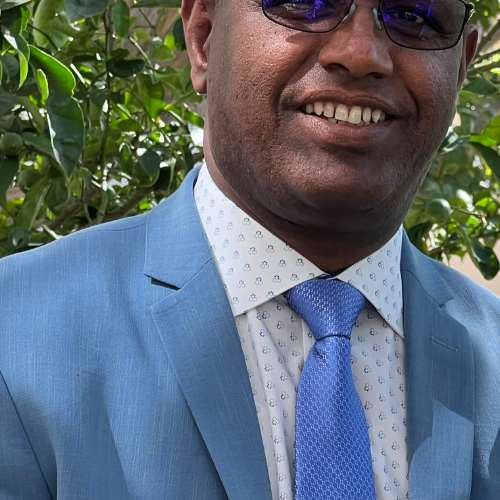
Endawoke Yizengaw is the epitome of the AGU Joanne Simpson Medal. He has demonstrated scientific excellence in space science research; performed active outreach to the international space weather community; and dedicated strong commitment to his colleagues, students, and postdocs.
I’ve come to know Endawoke not only for his scientific prowess but also for his life story, how he became a great scientist and a great man after very humble beginnings in Ethiopia. Endawoke was born the youngest child of a large Ethiopian family in a rural village where herding and animal care were his primary activities. School was attended by walking long distances every day. His brilliance was recognized by his teachers, who encouraged him (and his family) to stay in school and later to attend university. He obtained a B.S. in physics at Addis Ababa University, a M.S. in atmospheric physics from the University of Tromsø, and a Ph.D. in space physics from La Trobe University in Australia. Since then, he has done much to advance space physics exploration with a keen interest to develop infrastructure and education in space science in developing countries. Considering his humble beginnings, these are admirable accomplishments.
Endawoke has contributed significantly to the scientific literature on the complexities of ionospheric electrodynamics. He has published scores of high-impact papers using multiple instrument techniques from ground and space. Two of his early papers were selected for the cover of Geophysical Research Letters. One of those papers proved a long-standing conjecture that the ionospheric trough is the signature of a boundary in the magnetosphere. More recent publications describe work where he used ground-based measurements to demonstrate that dayside electrodynamics display not only temporal and seasonal variations but also very strong gradients versus longitude. In addition, Dr. Yizengaw developed the African Meridian B-field Education and Research (AMBER) network of magnetometer instruments in more than 10 countries.
Besides his scientific contributions, Endawoke has played a vital role in the expansion of space science education and research in developing countries. He participates in the International Space Weather Initiative (ISWI), was active in the International Heliophysical Year (IHY) program, and has performed scientific outreach programs for young scientists in the United States and developing nations. He has coconvened conferences and schools in Africa, including an AGU Chapman Conference and a number of ISWI and IHY programs. Endawoke has also mentored postdocs and Ph.D. students who have gone on to develop research programs in developing countries.
To summarize, Dr. Yizengaw is an eminent mid-career scientist with attributes emphatically worthy of the AGU Joanne Simpson Medal.
—Patricia H. Doherty, Boston College, Mass.

